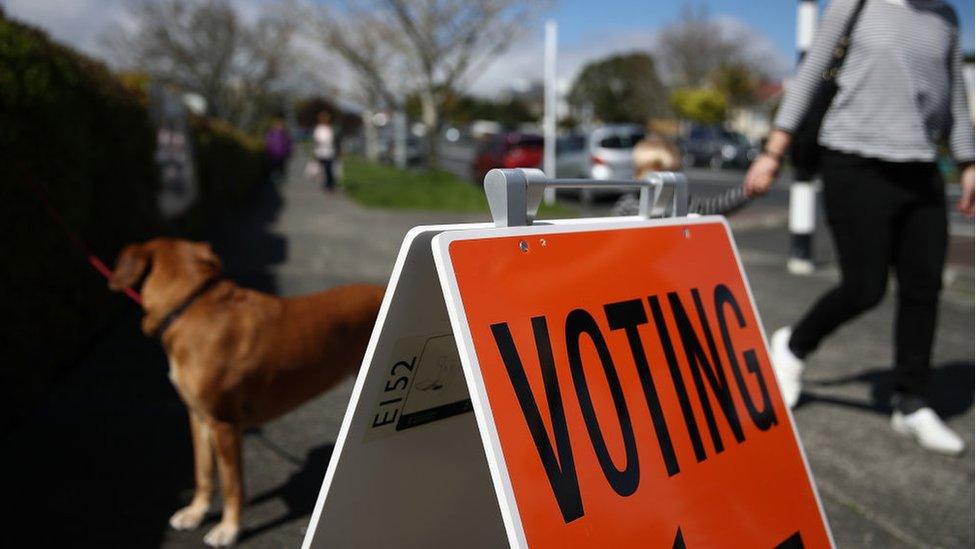New Zealand Supreme Court rules voting age of 18 is discriminatory
- Published

New Zealand's Supreme Court has ruled that the country's current voting age of 18 is discriminatory, meaning parliament must discuss whether it should be lowered.
The case was brought by campaign group Make It 16, which wants the voting age reduced to include 16 and 17 year olds.
"This is history," Make It 16 co-director Caeden Tipler said.
The group argued that young people should be able to vote on matters affecting them, such as climate change.
The issue must now be brought to parliament, after the court ruled that New Zealand's minimum voting age of 18 was inconsistent with the country's Bill of Rights - which gives people who are 16 years and over the right to be free from age discrimination.
The ruling聽does not mean that the voting age will definitely be lowered.
Reacting to the ruling, Make It 16's Caeden Tipler told the 大象传媒 the campaign had been an "up-hill battle" but they had always felt "confident" that the Supreme Court would support their case.
"We now have the legal backing for what we've always known," they said.
The 17-year-old from Auckland said they had felt frustrated at not being able to vote on issues that mattered to them in the last election in 2020.
"I became incredibly frustrated. I felt like I knew just as much as the adults around me... I was more than capable of voting," they said.
Following the ruling, Prime Minister Jacinda Ardern said she personally supported reducing the voting age to 16, but added that "it is not a matter simply for me or even the government, any change in electoral law of this nature requires 75% of parliamentarian support".
Not all parties support the lowering of the voting age.
The centre-right National party opposes the move, while the Labour party is yet to state whether it would support a change in voting age or not.
Related topics
- Published19 September 2018
- Published18 June 2015